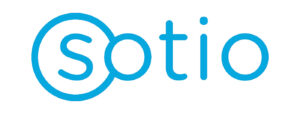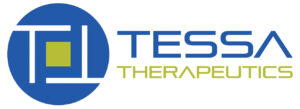
After decades of research, cell and gene therapies are gaining traction in the biotech industry. Here are five investor-favored private startups with products already in clinical development.
While conventional medications are often effective at controlling symptoms or modifying a disease, there are many conditions where their benefits are limited, such as rare genetic diseases.
One way to bridge the gap is with cell and gene therapies. Cell therapies involve giving patients engineered cells as “living drugs,” which can be sourced from patients themselves (autologous cells) or from healthy donors (allogeneic cells). Depending on the type of therapy, the infused cells could fight cancer or even reverse organ damage by rebuilding damaged tissues.
Gene therapies, on the other hand, involve delivering a therapeutic gene directly into a patient’s body—for example, a healthy version of a mutated gene causing a genetic disease. With a single dose, the aim is to return a normal life to patients with conditions such as hemophilia B and genetic blindness.
While cell and gene therapies are still an emerging field, their potential is already making itself known in the biotech industry. This is especially the case for autologous CAR-T cell therapies, in which the patient’s T cells are genetically engineered in the lab to fight cancer more effectively and then reinfused into the patient. The first CAR-T therapies, Yescarta and Kymriah, were approved by the U.S. Food and Drug Administration (FDA) in 2017 for the treatment of rare forms of blood cancer, and another four have been greenlit since.
CAR-T therapies are just the tip of the iceberg. In 2022 alone, the FDA greenlit a record five cell and gene therapies, including the first hemophilia B gene therapy. In 2023, as many as 18 cell and gene therapies could receive regulatory decisions worldwide.
It hasn’t been plain sailing for cell and gene therapy companies, however; global investment in the space fell from $22.7 billion in 2021 to $12.6 billion in 2022. Nonetheless, there have been big funding rounds going to startups, with CAR T being particularly attractive for investors.
Here’s a look at five of the best funded gene and cell startups that already have clinical development in progress.
1. Castle Creek Biosciences
Founded: 2018 | Headquarters: Exton, Pennsylvania, U.S.
Castle Creek Biosciences was established under the umbrella of the startup creator Paragon Biosciences. The firm develops cell and gene therapies for incurable rare diseases, with a focus on the skin condition recessive dystrophic epidermolysis bullosa (RDEB). RDEB occurs when a patient has a mutation in a gene for a type of collagen protein, and it leaves the sufferer highly prone to blisters and wounds.
To tackle RDEB, Castle Creek is developing an ex vivo gene therapy in which a therapeutic gene is delivered to the patient’s skin cells outside of the body, and they are then reinfused into the patient. The gene therapy is delivered to cells using a type of viral vector called lentiviral vectors.
Meanwhile, Castle Creek is also targeting the metabolic disease hereditary tyrosinemia type 1 (HT1) with preclinical-stage in vivo gene therapies, using another lentiviral vector to transport a therapeutic gene directly to liver cells.
The firm aims to complete a Phase III trial of its ex vivo treatment for RDEB and is funding the development with the help of a $112.8 million financing round that closed in May 2022. The company had initially planned to go public on the Nasdaq in late 2021, but tumbling stocks across the global biotech industry led Castle Creek to change its plans.
To pump up its cell and gene therapy muscle, Castle Creek also took over the preclinical-stage gene therapy firm Novavita Thera in early 2022.
2. Frontera Therapeutics
Founded: 2019 | Headquarters: Bedford, Massachusetts, U.S.
Frontera Therapeutics was set up by a team that includes its current CEO, Yong Dai, who helped to take the gene therapy firm Prevail Therapeutics onto the Nasdaq in 2019 and into an acquisition deal with Eli Lilly in 2020.
With bases in the U.S. and China, Frontera is developing gene therapies for a wide range of indications including genetic blindness conditions, blood disorders, and metabolic diseases. Its gene therapies are delivered to their target tissues in the body using adeno-associated viral (AAV) vectors. The company tweaks the viral vector’s genome to give it desired characteristics such as reduced immunogenicity and to improve the gene therapy’s effectiveness.
To fuel its mission, the company raised $160 million in a Series B financing round in July 2022. Frontera is using the proceeds to run a Phase I trial of its lead candidate gene therapy, FT-001, for the treatment of the inherited retinal disease Leber congenital amaurosis-2 (LCA-2). To tackle LCA-2, FT-001 is designed to be injected into the subretinal space and deliver a healthy copy of the mutated gene that causes the condition. The first results from the clinical trial are expected by the end of 2023.
Frontera is also testing its second candidate, FT-003, in a Phase I trial for the treatment of neovascular or wet age-related macular degeneration, with results similarly expected in late 2023.
3. Sotio Biotech
Founded: 2010 | Headquarters: Prague, Czechia
Sotio Biotech stormed onto the biotech scene in late 2021 with an impressive funding round totaling $317 million, one of Europe’s biggest-ever private biotech financing rounds.
Sotio is developing a range of cancer immunotherapies, including fusion proteins, antibody-drug conjugates, and CAR-T therapies. The CAR-T program aims to make CAR-T cells effective against solid tumors, which has been an elusive goal so far in the industry because the tumors can suppress the action of T cells.
To overcome this obstacle, Sotio designs its CAR-T therapies with extra modifications to genes regulating T cell growth and survival to make them more resilient and effective against solid tumors.
While Sotio’s CAR-T candidates are less advanced than its lead candidate fusion protein, the company is now recruiting patients with specific types of advanced solid tumors into a Phase I/II trial of its most advanced candidate, BOXR1030. The trial’s expected primary completion date is mid-2024.
SparingVision
Founded: 2016 | Headquarters: Paris, France
Traditional gene therapies are designed to deliver the healthy version of a mutated gene into a patient. For diseases caused by only one type of mutation, this is adequate. However, some genetic diseases arise due to different mutations in different patients, making it harder for a company to correct all of them with a single gene therapy.
SparingVision is developing its own answer to this problem in the genetic blindness condition retinitis pigmentosa, which can be caused by 80 different types of mutations. The firm’s lead candidate, SPVN06, is designed to slow the disease by promoting the production of protective molecules in photoreceptor cells. By delivering these genes, the therapy could counteract the pathology regardless of what mutation caused it.
SparingVision caught the attention of venture capital firms in September 2022, when the company raised a Series B round worth $75.5 million. The company aims to use the funding to bankroll first-in-human trials of its two most advanced programs, in addition to a gene editing collaboration with Intellia Therapeutics struck in 2021.
At the end of 2022, SparingVision’s lead candidate SPVN06 was cleared by the FDA for testing in humans. The firm plans to launch a Phase I/II trial this year, with early safety data expected by the end of 2023.
5. Tessa Therapeutics
Founded: 2012 | Headquarters: Singapore
Although autologous CAR T therapies can be highly effective in patients with forms of blood cancer, these patient-derived therapies take precious weeks to produce. Allogeneic CAR T therapies can be delivered much faster, but donor-derived CAR T cells are more prone to attacking the patient’s body in graft-versus-host disease (GvHD).
In 2022, Tessa Therapeutics raised a Series A financing round worth $126 million to help it navigate this challenge. The Singapore-based company is developing allogeneic CAR T cells that are derived from donors but that are less dangerous to the host than other allogeneic cells. This is because Tessa’s therapy is derived from a type of T cells that target cells infected with Epstein-Barr virus.
Tessa’s lead allogeneic therapy, TT11X, is currently in a Phase 1 trial for the treatment of CD30-positive lymphomas. The firm also has an autologous CAR T therapy, TT11, for the treatment of classical Hodgkin lymphoma, now in a Phase II trial. In January 2023, however, the firm decided to redouble its focus on the allogeneic route and leave its autologous work open for partnered development.
Acknowledgements: Thanks to Cedric Moreau, partner of the venture capital firm Sofinnova Partners, and Fady Riad, analyst and CEO of the consulting firm Centurion Life Sciences, for tips on companies to include.
Jonathan Smith is a freelance science journalist based in the U.K. and Spain. He previously worked in Berlin as reporter and news editor at Labiotech, a website covering the biotech industry. Prior to this, he completed a PhD in behavioral neurobiology at the University of Leicester and freelanced for the U.K. organizations Research Media and Society of Experimental Biology. He also has an undergraduate degree in neuroscience and worked at the pharmaceutical company Eisai for one year on a student placement.

















